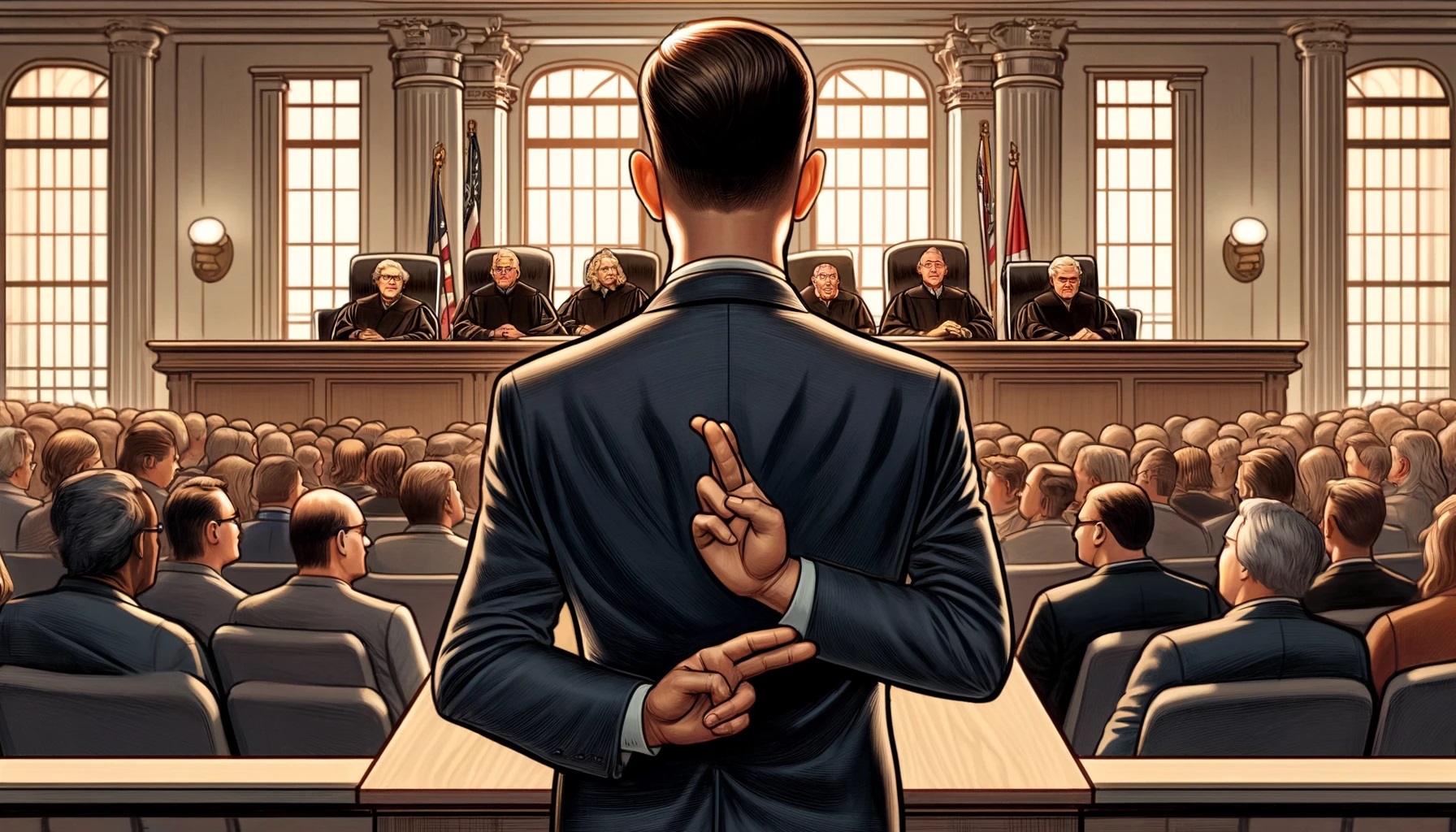
When the 9th Circuit panel asked counsel at oral argument whether LAUSD was going to reverse its Covid-19 vaccine mandate, counsel did not give a straightforward answer. Then walking out of the courthouse, LAUSD’s counsel turned to plaintiff’s counsel and said, “what are you going to do when we rescind the mandate?” And a few days later, it did just that. (”See how easy it is to be a government attorney!”)
That peeved the majority. When LAUSD moved to dismiss the appeal as moot, the panel in Health Freedom Def. Fund v. Carvalho, No. 22-55908 (9th Cir. June 7, 2024) denied the motion, and criticized counsel in the process. Mootness is often in the eye of the beholder, after all, and when it looks like you’re trying to manufacture mootness, count on it not working.
But Judge Collins, dissenting, thought the criticism unfair.
Here is what happened. California Educators for Medical Freedom sued LAUSD in March 2021 when it first issued its no-exceptions employee vaccine mandate. But the next day, LAUSD “clarified” its mandate to allow for testing in lieu of vaccination. The district court ruled this mooted the lawsuit.
But two weeks later in August 2021, LAUSD pulled the rug out and eliminated the testing option. So CEMF, now joined by Health Freedom Defense Fund, sued again. But the district court dismissed this case too, this time on the basis that the policy was permissible under Jacobson v. Massachussets, 197 U.S. 11 (1905), the Supreme Court’s precedent upholding a smallpox mandate imposing either immunization or a $5 fine. Plaintiffs appealed.
LAUSD’s policy remained unchanged 20 months later, vigorously defending its policy in its answering brief and never hinted it might change. It was the same at oral argument in September 2023, over two years into the suit. The panel noted that employee mandates in two other states, Oregon and Washington, had been revoked before answering briefs were filed, and inquired whether LAUSD had similar plans. LAUSD remained firm in its policy.
As they were leaving the courtroom, however, according to a declaration submitted by plaintiff’s counsel, LAUSD’s attorney turned to him and said, cryptically, “What are you going to do when we rescind the mandate?” The same day, LAUSD began a process that considered the oral arguments and litigation prospects and ended, 12 days later, with the mandate being rescinded.
Denying LAUSD’s motion to dismiss the appeal, both the majority and dissent noted that a defendant’s “voluntary cessation” is an exception to mootness. So it must be reasonably clear that the practice will not recur, and that the effects of the alleged violation must be permanently reversed. Establishing these elements is a “formidable burden,” and the majority held LAUSD had not met it, noting its pattern of withdrawing and then reinstating its mandate. The majority noted that LAUSD had now twice withdrawn its mandate, each time when facing a litigation risk—first, the day after the first lawsuit was filed; second, 12 days after oral argument.
“Litigants who have already demonstrated their willingness to tactically manipulate the federal courts in this way should not be given any benefit of the doubt.” The majority called out LAUSD’s “about-face” after “vigorous questioning at argument,” and concluded this “suggests that it was motivated, at least in part, by litigation tactics.”
Dissenting, Judge Hawkins thought it plausible that, as to its policy back in 2021, rather than rescind due to tactical reasons LAUSD simply had not yet implemented it, and then when it did, that coincided with the start of the school year. While a layperson might be incredulous, the court should “afford the government a presumption of good faith.” Responding to this, the majority said that judges “are ‘not required to exhibit a naiveté from which ordinary citizens are free.’”
That is why I think the majority’s stronger rationale is that, even when rescinding its policy, LAUSD “expressly reserved the option to again consider imposing a vaccine mandate.” In rescinding the mandate, LAUSD noted the conditional nature of its decision. Its board stated that, at that time, Covid was no longer “spreading at a rapid enough pace to overwhelm hospital systems,” but that it would continue to monitor to see if “health conditions necessitate a revisiting of the COVID-19 vaccine requirement.” In view of the countless Covid variants and the board’s reservation of broad discretion, LAUSD—even assuming its good faith—had not met its “formidable burden” to show the mandate would not recur and that its effects were “permanently reversed.”
Turning to the merits, the majority discussed the only Supreme Court decision involving a vaccine mandate, Jacobson. That case held that a smallpox vaccination mandate was justified “to prevent the spread of smallpox.” But the Covid vaccine, according to plaintiffs’ allegations, does not prevent the spread of disease, but only mitigates the symptoms for the vaccine recipient. Indeed. the plaintiffs and the majority note that, for the purpose of the Covid vaccine, the CDC changed the definition of “vaccine” to remove “immunity.” Because the Covid vaccine does not provide immunity, Jacobson’s immunity rationale does not apply. And the majority declined to extend Jacobson to “also govern ‘forced medical treatment’ for the recipient’s benefit.”
The majority cautioned that it was not prejudging the merit of plaintiffs’ allegations, and held only that, at the pleading stage the court must accept these well-pleaded allegations. In fact, as Judge Collins argues in his concurring opinion, the Supreme Court has supported a “a constitutionally protected liberty interest in refusing unwanted medical treatment.” Cruzan ex rel. Cruzan v. Director, Mo. Dep’t of Health, 497 U.S. 261, 278-79 (1990).